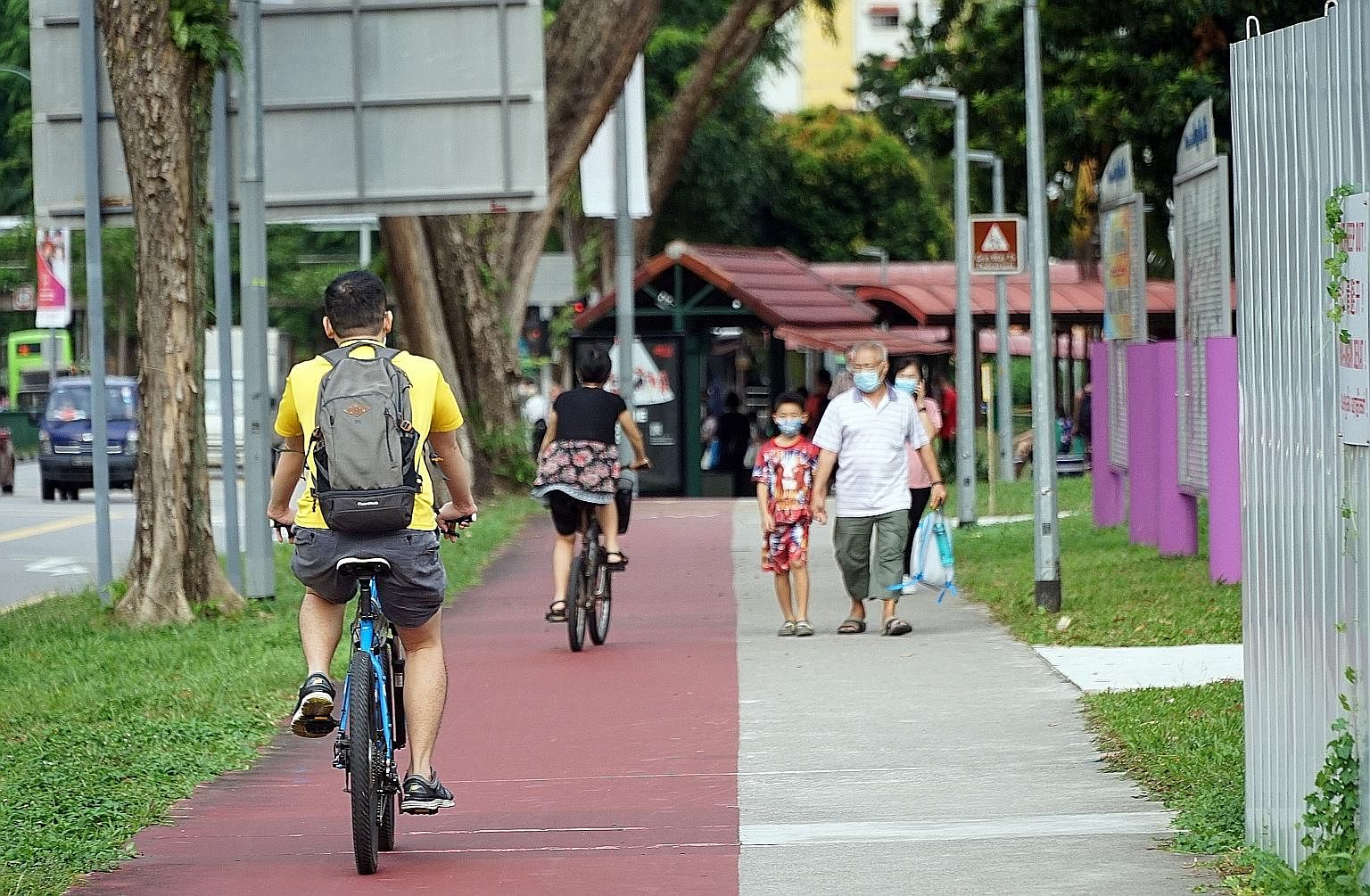If there is one thing recent events have shown, it is that the status quo cannot be taken for granted - not when business as usual can be brought to its knees so easily, and by a tiny foe.
Singapore intends to rise to the challenge posed by the coronavirus with a focus on sustainable development, according to plans set out by three ministries yesterday in their addenda to the President's Address.
The Transport Ministry, for one, wants to revive the ailing Changi air hub and strengthen the maritime sector, even while supporting initiatives that aim to reduce emissions in both areas.
The National Development Ministry is helping the construction sector, hard hit by the pandemic, get back on its feet again, so that green buildings and other infrastructure can be built amid a "city in nature".
The Ministry of Sustainability and the Environment is bolder yet, envisioning growth opportunities in a "low-carbon and climate-resilient future" for Singapore, a nation that relies on fossil fuels for energy and has a thriving petrochemical sector.
The focus on sustainability in recovery is timely.
The reason: While the coronavirus would eventually be tamed with medicines and vaccines, the looming threat of climate change will persist and has to be dealt with.
Changing weather patterns and extreme weather events could have similar impact on the world as Covid-19 - the loss of lives and livelihoods, strain on healthcare systems and global supply chains, and shattered economies.
But in Singapore, the focus on environmental sustainability is not entirely new.
Founding prime minister Lee Kuan Yew had emphasised the need for a clean environment from Singapore's infancy, and many initiatives have since been implemented to make Singapore greener.
Yet, the latest updates - with the focus on the recovery of certain sectors and creation of jobs - have highlighted the multi-dimensional nature of sustainability.
Beyond environmental protection, sustainability is also about ensuring people here continue to have jobs, and that Singapore society remains inclusive and liveable.
American economist Jeffrey Sachs noted that while sustainable development was initially a concept that centred on how development should not threaten the needs of present and future generations, it has evolved.

It now focuses more on linking economic development, social inclusion and environmental sustainability, he wrote in his book The Age Of Sustainable Development.
Indeed, the spread of the coronavirus has highlighted the intersection between environmental and human health, and the impact on societies.
Environmental sustainability is not new for Singapore, but the pandemic seems to have spurred a greater willingness to push the boundaries.
Transport Minister Ong Ye Kung said yesterday the reduced traffic and new travel patterns created by Covid-19 have opened a "window of opportunity to reimagine our road infrastructure".
"For example, certain underused road lanes can be converted to cycling and bus lanes," he said.
There have also been ad hoc "car-free" events in Singapore to promote the nation's car-lite vision.
But Mr Ong yesterday floated the possibility of pedestrianising certain roads.
A low-carbon future for Singapore has been raised before, although earlier discussions often centred on the country's drive to tap more renewable energy and boosting energy efficiency.
Recently, former minister for the environment and water resources Masagos Zulkifli had said that part of the petrochemical sector will remain, even as Singapore continues to push the boundaries on cutting emissions.
But Ms Grace Fu, who took over Mr Masagos' portfolio in the recent Cabinet reshuffle that also saw the ministry renamed to reflect the greater role of sustainability, had highlighted another aspect of this vision - the need for Singapore to transition, competitively, to a low-carbon and climate-resilient future.
She cited opportunities in decarbonisation, and growing green industries such as carbon services and climate science.
At the opening of the 14th Parliament on Monday, President Halimah Yacob spoke of overcoming Covid-19 with a push towards a green economy and more sustainable growth.
Yesterday, three ministries gave details on how this could be done.
The plans were encouraging, but the devil is in the details.

